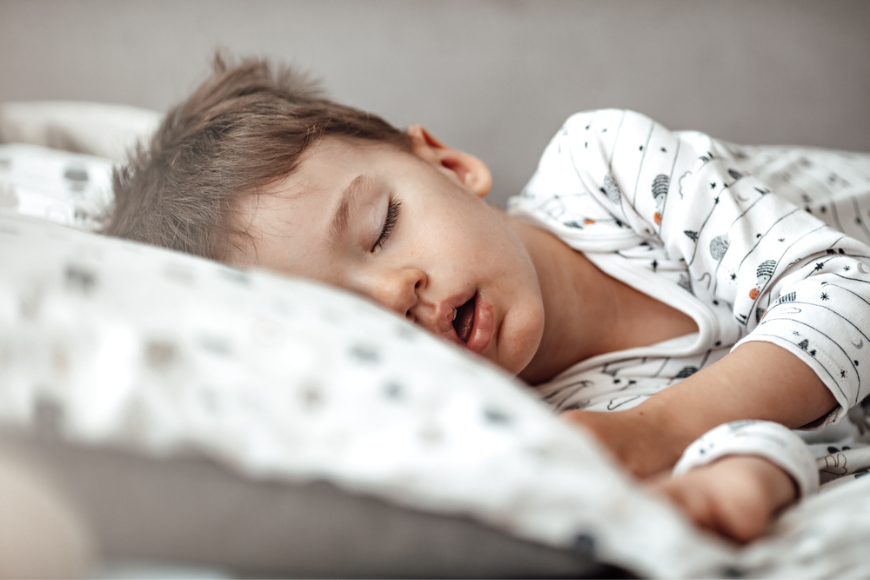21 November 2013
| Last updated on 7 July 2015Dental Care For Your Baby
Teeth start to develop while the child is in the womb. Most babies begin growing teeth by the third and six months of pregnancy, others may develop faster or slower than usual.

At birth, a complete set of 20 primary teeth are grown hidden within the gums. Primary teeth are also known as milk teeth, deciduous teeth or baby teeth. The first tooth generally erupts at about six months of age. 'Eruption' refers to the tooth breaking or cutting through the gums. For babies, this is more commonly called as 'teething'.
When should I start cleaning my baby's teeth?
Good oral hygiene should begin even before your baby's first tooth comes in. Get into the habit of wiping your baby's gums with a clean, soft washcloth after each feedings and before you put him to sleep. There's no need for toothpaste just yet. Simply wrap the cloth around your finger and gently rub it along his lower and upper gums. Getting him used to having his gums cleaned is a good way of preparing him for toothbrushing later on.
When should I begin brushing his teeth?
Start using a toothbrush as soon as his first tooth erupts. Use a soft bristled toothbrush and commercially available toothpaste made especially for young children. Teething generally starts at about six months and it causes irritability and discomfort for most babies. Brush his tongue gently to avoid build-up of bacteria that cause infections and bad breath. Replace toothbrushes every two to three months.
Do I need to get him fluoridated toothpaste? Am I giving my baby just the right amount of toothpaste?
Fluoride strengthens the protective structure of the teeth known as enamel. This mineral makes the teeth less resistant to acids and bacteria that break down and damages the teeth's enamel. As recommended by the American Academy of Pediatric Dentistry, use a 'smear' of toothpaste for children less than two years of age and a 'pea-sized' amount for children aged two to five. Too much fluoride can lead to fluorosis. Fluorosis causes white spots that stain the teeth. Remember to teach your child to spit out toothpaste after brushing.
How do I know that baby's starting to teeth? What can I do to help ease his discomfort?
Symptoms of teething baby include restlessness and irritability, gum swelling, sleeping problems, loss of appetite, increased saliva or drooling, rashes or redness in the cheeks and frequent biting of fingers and other objects into the mouth. Comfort your baby by giving him something to chew on, such as a cold teeth ring or a cold clean washcloth. Soothe him by gently massaging and rubbing his gums. If none of this works, your doctor may suggest giving your baby acetaminophen to relieve his pain.
Read our special features...
- Dr. Michael’s Dental Clinic Welcomes Oral-Maxillofacial Surgeon Prof. Steen Sindet-Pedersen, Click here >>
- How does diabetes affect oral health? Click here >>
- Dry Mouth and Your Oral Health, Click here >>
- 8 Ways to Protect Your Child’s Teeth, Click here >>
- 7 Easy Flossing Steps for Children, Click here >>
- Dental Implants - Frequently Asked Questions, Click here >>
- Dental Implants - your smile savers, Click here >>
- Make Flossing a habit, Click here >>
- Our new Pediatric Dental Care Centre, Click here >>
- Our new specialist Pediatric dentists, Click here >>
- Meet Dr. Regenbogan - Extracting Anxiety out of Dentistry, Click here >>
- 8 Tips in ruling out dental fear, Click here >>
- Too old for dental braces? Click here >>
- Dental care for your baby... Click here >>
-
Tips to get your child to brush their teeth... Click here >>
Children's Dental Centre
Villa 1020 Al Wasl Road, Umm Suqeim 1. Dubai, UAE
Tel: +971 4 3397700
Jumeirah Clinic
Villa 418 Al Wasl Road, Jumeirah 2, PO Box 12372, Dubai, UAE.
Tel: +971 4 349 5900, Fax: +971 4 342 0455
Email: [email protected]
Umm Suqeim Branch
Villa 1016 Al Wasl Road, Umm Suqeim 1, PO Box 213720, Dubai, UAE.
Tel: +971 4 394 9433, Fax: +971 4 395 5390
Email: [email protected]































































































![We Tried [u]bk's Lively Garden Brunch at Mövenpick JLT Dubai We Tried [u]bk's Lively Garden Brunch at Mövenpick JLT Dubai](https://cdnexpatwomanfood.expatwoman.com/s3fs-public/urban%20bar%20and%20kitchen%20brunch%20main.png)








































